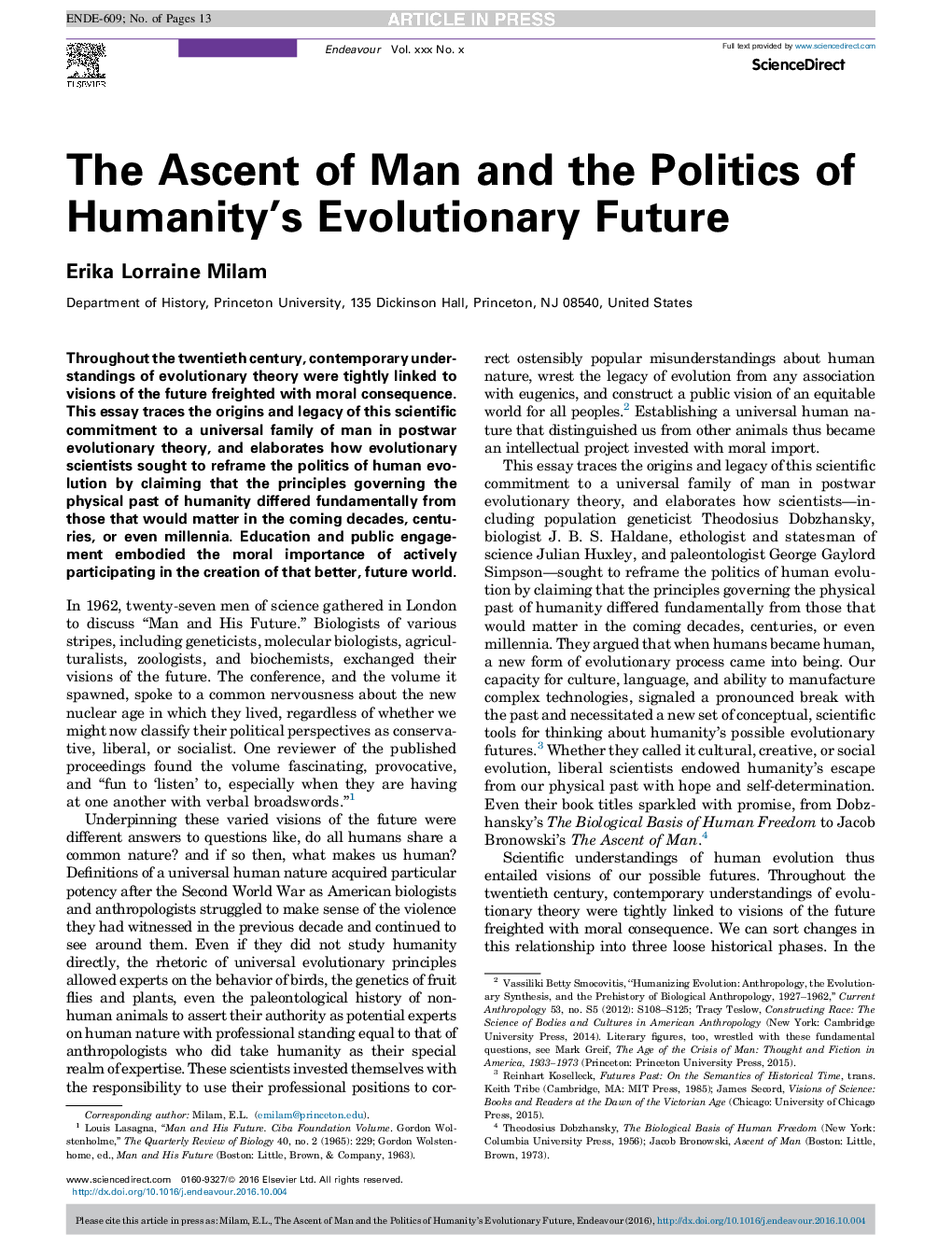| Article ID | Journal | Published Year | Pages | File Type |
|---|---|---|---|---|
| 7550936 | Endeavour | 2016 | 13 Pages |
Abstract
Throughout the twentieth century, contemporary understandings of evolutionary theory were tightly linked to visions of the future freighted with moral consequence. This essay traces the origins and legacy of this scientific commitment to a universal family of man in postwar evolutionary theory, and elaborates how evolutionary scientists sought to reframe the politics of human evolution by claiming that the principles governing the physical past of humanity differed fundamentally from those that would matter in the coming decades, centuries, or even millennia. Education and public engagement embodied the moral importance of actively participating in the creation of that better, future world.
Related Topics
Social Sciences and Humanities
Arts and Humanities
History
Authors
Erika Lorraine Milam,
